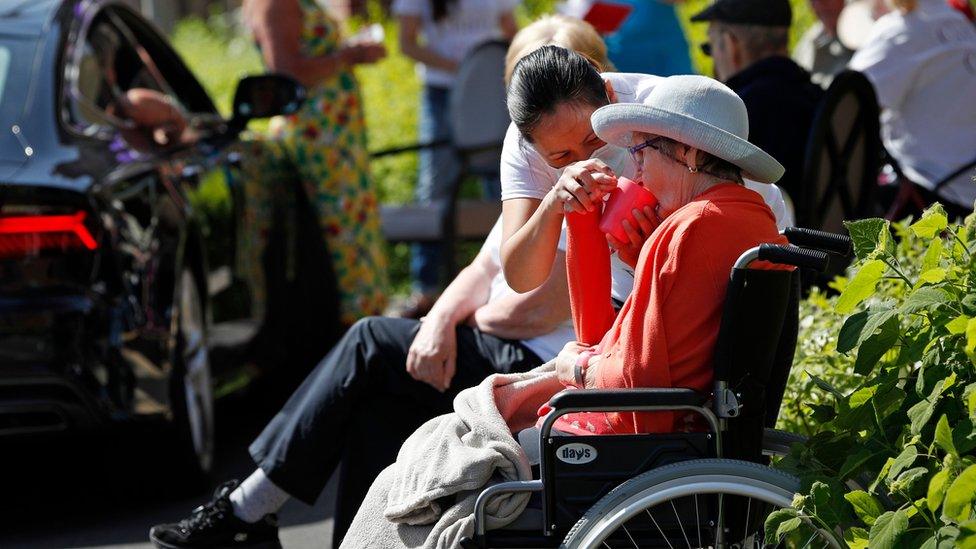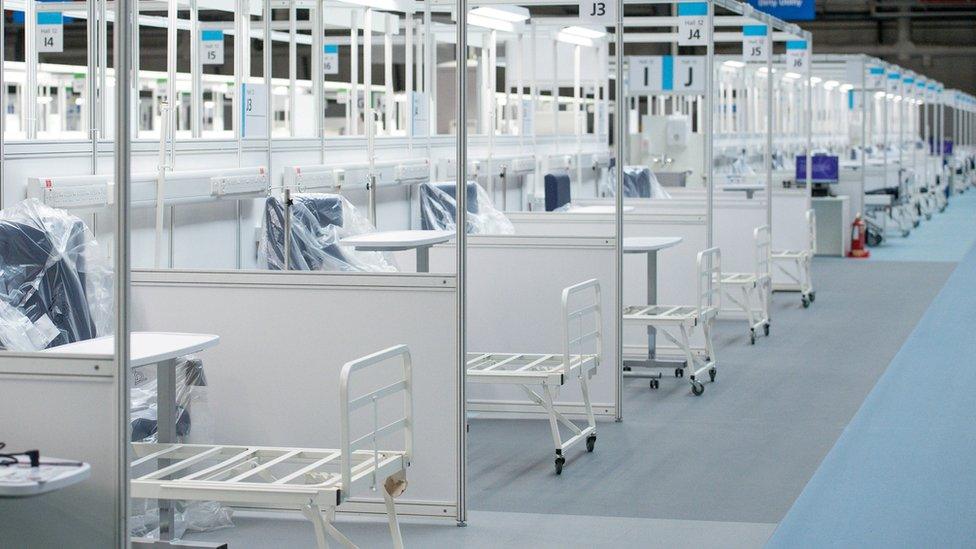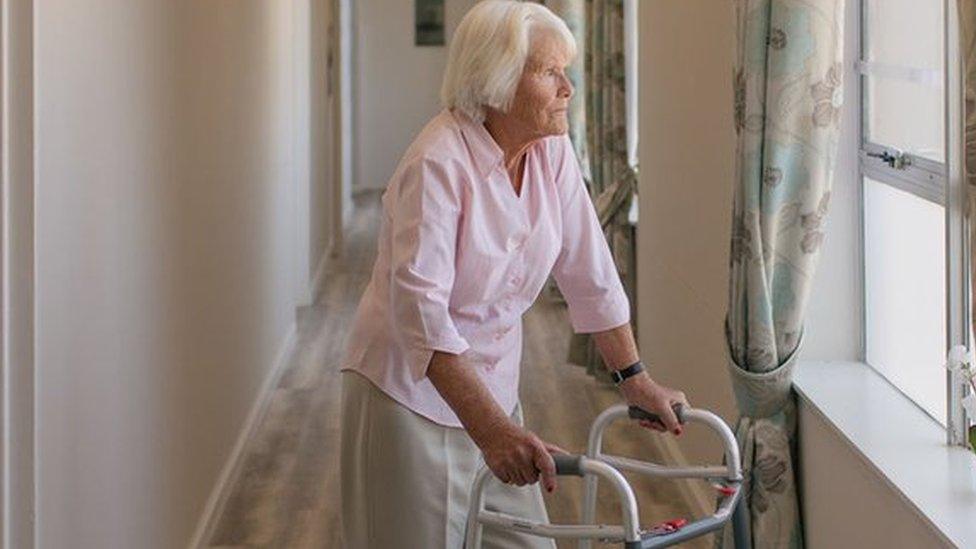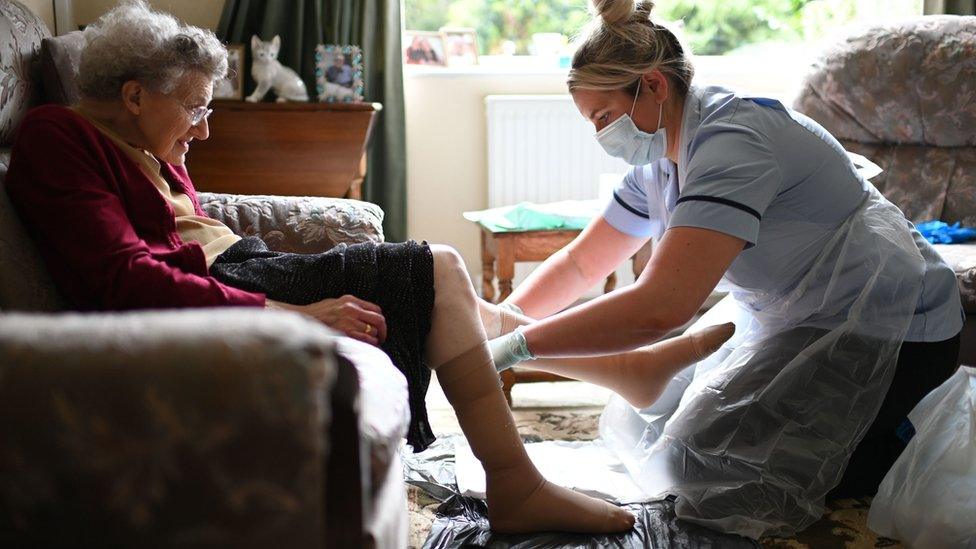Coronavirus: Sending untested patients to care homes 'reckless' - MPs
- Published
- comments

The decision to allow hospital patients in England to be discharged to care homes without Covid-19 tests at the start of the pandemic has been described as "reckless" by MPs.
The Public Accounts Committee said there had clearly been an "emerging problem" with official advice before it was "belatedly" changed in April.
It accused ministers of being slow to support social care during the crisis.
The government said it had been "working closely" with the sector.
The committee said around 25,000 patients were discharged into care homes in England between mid-March and mid-April to free up hospital beds.
After initially saying a negative result was not required before discharging patients, the government later said on 15 April all patients would be tested, external.
In a highly critical report, the cross-party committee said the initial decision to allow untested patients into care homes was an "appalling error".
Speaking to the BBC, committee chair Meg Hillier acknowledged there had been limited data about the virus when early decisions were made; however she said there was also a long-term lack of understanding at the health department about how the care sector works.
"The fact that there are people on low pay not taking sick leave, moving from home to home were things that were risk elements - if you had better understanding of any impact of any disease on a care home you would have understood the implications," she said.
The committee says that, by September, the government should review which care homes took discharged patients, and how many went on to have outbreaks.
In its evidence to the committee, Public Health England said nationwide testing capacity was limited to 3,500 tests per day at the start of the crisis.

HOLIDAYS: Will I get a summer break?
FACE MASKS: When should you wear one?
TESTING: Who can get a test and how?
LOOK-UP TOOL: How many cases in your area?
GLOBAL SPREAD: Tracking the pandemic

The agency added that it had agreed with the NHS and chief medical officer to prioritise testing for those in intensive care and those with respiratory illnesses, along with limited testing in care homes to detect outbreaks.
However the committee said the policy of discharging untested patients continued "even once it was clear there was an emerging problem".
Regular testing for staff and residents in care homes in England was rolled out earlier this month.

The Nightingale hospitals, little used earlier this year, are to be kept in reserve.
Elsewhere, the committee expressed concern about NHS use of public money when securing private hospital treatment for patients at the start of the pandemic.
It said NHS England had failed so far to provide "even a rough estimate" of costs, criticising an "apparent lack of transparency".
The MPs also said the costs of building England's Nightingale hospitals lacked transparency and "are also not yet known".
Under a funding package to help the NHS prepare for the winter, the temporary hospitals are due to be maintained until the end of March 2021.
'Series of mistakes'
Shadow social care minister Liz Kendall said the report confirmed the government "was too slow to act to protect older and disabled people".
"A series of mistakes were made despite clear warnings from what was happening in other countries," the Labour MP added.
A spokesman for the Department of Health and Social Care said it has been "working closely with the sector and public health experts" to develop guidance throughout the "unprecedented global pandemic".
The spokesman added an extra £1.3bn had been given to the NHS to speed up hospital discharges, while testing had been introduced for all care home residents and staff.
This includes "repeat testing for staff and residents in care homes for over-65 or those with dementia", they added.

FEELING LOST?: How to start thinking about the future
'HOMELESS HOTEL': Lockdown life inside emergency accommodation

- Published16 April 2020
- Published1 March 2023

- Published5 July 2020
